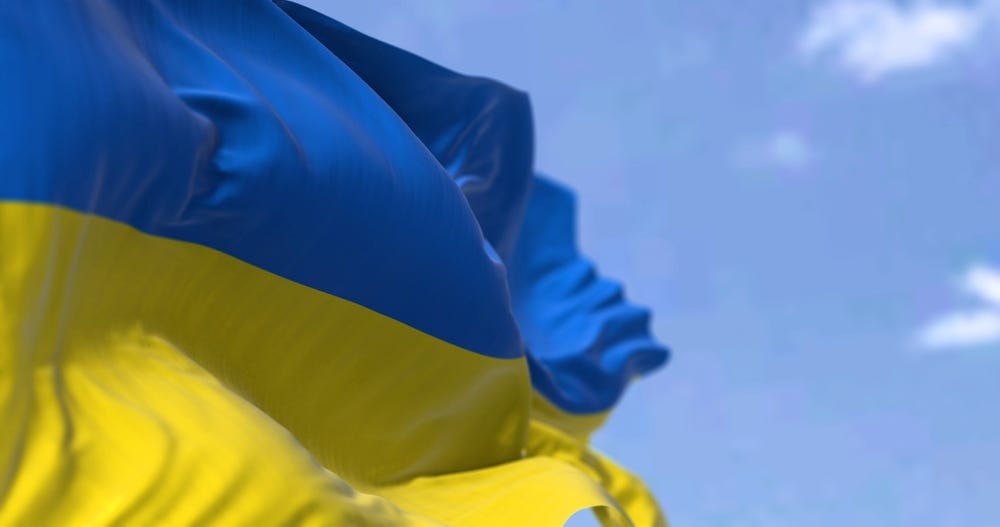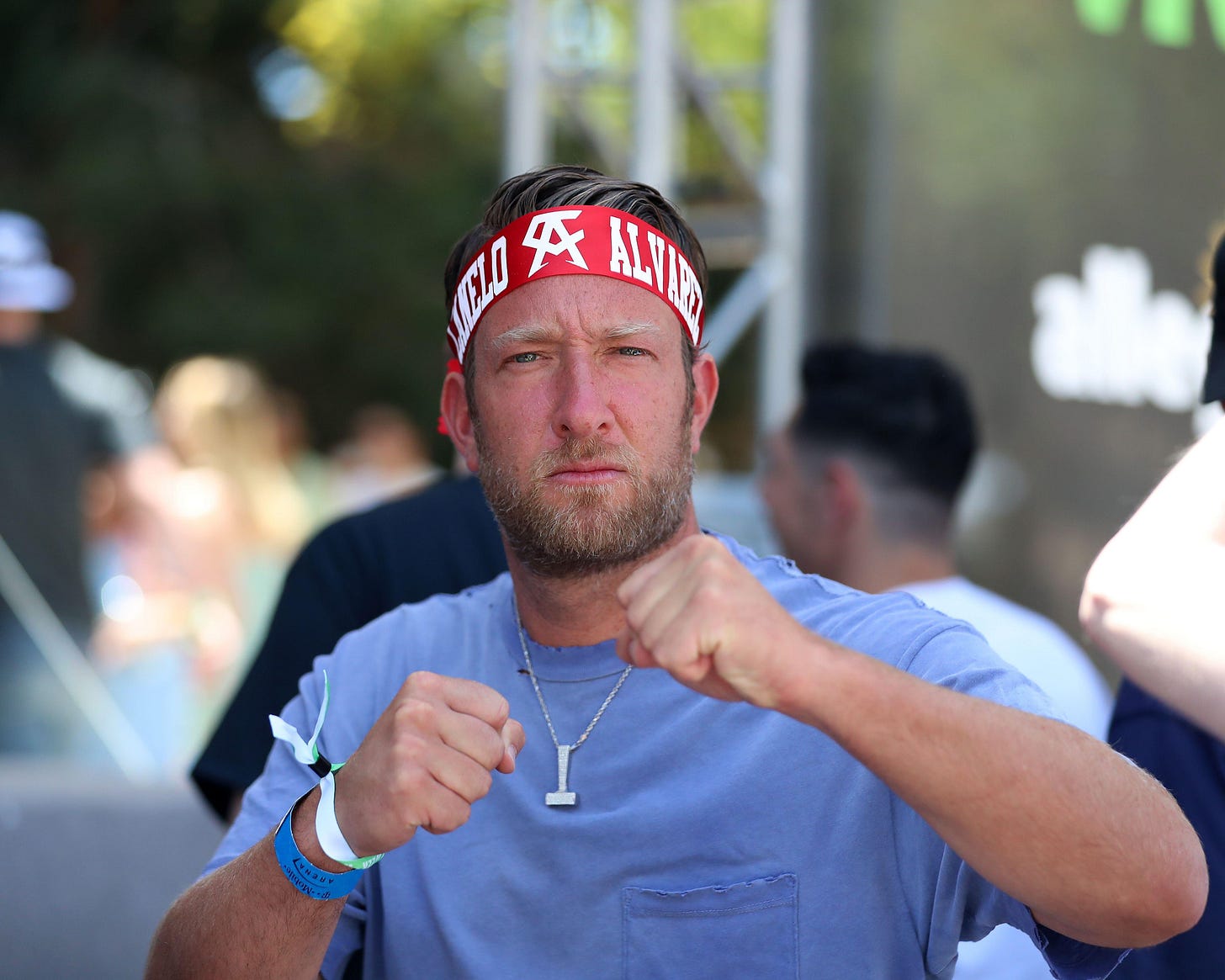Flutter, 888 Austrian tax standoff
Tax spat following court ruling, Parimatch sanctions, Barstool’s Mass debate, Germany’s black market issue +More
Good morning. On today’s agenda:
Flutter, 888 refusing to back down in Austria spat.
Parimatch claims dark motives behind Ukraine sanctions.
Barstool’s can’t lose predicament in Massachusetts.
‘Rampant’ black market bleeding German operators dry, industry claims.
UK White Paper: a new minister enters the game.
Austrian tax spat
Flutter and 888 have fired back at Austria’s Supreme Court following a ruling that they are operating in the country illegally.
Pay me my money down: The pair, along with several other online operators, have been ordered to refund multiple millions of losses sustained by gamblers who it was claimed were targeted unlawfully.
Over 2,500 gamblers received reimbursements worth €75.8m for January alone.
However, around €34m is still owed and the payments have dried up.
That’s all, folks! Flutter-owned PokerStars has paid just €1.7k out of its required €17m, while Mr Green, owned by 888, has not paid any part of the €12.6m it is alleged to owe.
William Hill, of the 888 stable, still owes around €4m of the €6.7m sought.
Entain, the owner of Ladbrokes, has returned the entirety of its €41m bill.
A further €61m worth of claims are yet to be resolved by the court.
I think you should leave: Attorneys for the punters had claimed anti-money laundering and consumer protection regulations were breached. 888 recently removed its chief exec following a string of compliance failings under those banners.
“PokerStars operates legally out of Malta under a Maltese license in accordance with the freedom of services across member states under EU law,” a spokesperson for the Flutter-owned firm said.
The company said it “will continue to vigorously defend these cases in Austria and when brought before Maltese courts”.
Flutter’s legal team claims online poker, where individuals bet against each other rather than the business, meant it was not accountable for any player losses.
888 is similarly bullish and aims to keep fighting, it said.
Sick of it all: Casinos Austria is the sole license owner for the European state and has held the monopoly since 2016. Senior sources at the company said they were “fed up” with the big operators interpreting the rules differently and using Maltese licenses to operate in areas where they don’t have on-the-ground authorization.
“As long as they can get away with it, the better for their revenues,” the source said.
“There is no such thing as cross-border recognition of gambling licenses – nowhere in the world,” the source told C+M.
“Only in countries where access to the gambling market is not possible for them, because of the existing national licensing regimes, do they use their Malta license and the argument mentioned.”
Fighting talk: Flutter sources told C+M the state-sanctioned gambling monopoly “is contrary to the EU market freedoms” and should not be applied. The company also criticized the Austrian courts for “making decisions about complex legal matters in minutes”.
The case is expected to be referred to the European Court of Justice, while lawyers representing the operators have lodged a complaint with Brussels stating the monopoly runs counter to EU law.
** SPONSOR’S MESSAGE ** Tried, tested and proven over a decade in the highly-regulated US market, and continuing to expand across Europe, Latin America, Asia and Africa. GeoComply harnesses the power of its market-leading geolocation technology to protect against fraud, including fake account creations, bonus abuse, account takeovers, stolen identities, money laundering, and more. Visit geocomply.com.
Ukraine’s Parimatch sanctions
The company says a conspiracy lies behind the Presidential sanctions announcement.
Late last week, Parimatch LLC, Parimatch Foundation and Parimatch United Investments Limited were among 280 gambling entities and 120 individuals that President Volodymyr Zelensky said in a sanctions decree “worked against Ukraine” and “financed various Russian schemes”.
Among the companies cited alongside Parimatch are Sportloto, Sportbet, Bet.Ru, Betcity and Matchbet.
They have each been sanctioned for 50 years and have shuttered operations in the country with immediate effect.
Dark motives: Parimatch hit back, telling Interfax this was a “planned campaign” against the company and appealed to Zelensky to “take appropriate actions regarding all illegal violations by the Security Service of Ukraine”.
Parimatch denied Russian links and said it was “created by Ukrainians, developed by Ukrainians, employed and owned by Ukrainians” and employed 2,000 people in the country.
It added that it was a licensed entity that had paid UAH850m ($23.1m) in taxes and license fees.
Blue in the face: Parimatch has operations elsewhere, including a hub in Cyprus. The company’s UK-facing site is still operational, although the Daily Mail reported yesterday that Chelsea, among four Premier League clubs that have sponsorship deals with Parimatch, was reviewing its partnership.
Barstool can’t lose dilemma
The prohibition on the term ‘free bet’ in Massachusetts leads to ‘creative solutions’.
No free ride: The Massachusetts Gaming Commission prohibited terms that use ‘free’ in sports betting advertisements. The prohibition didn’t affect offers, as sportsbooks grabbed their thesauruses and Frankensteined new terms like ‘Bonus Bets’ and ‘Bet Credit’ together.
The long-running ‘Can’t Lose’ language used by Penn Entertainment’s Barstool Sportsbook is another matter.
The Can’t Lose Parlay can lose (and often does) as it’s not a promotion; it’s a suggested bet.
The language has long annoyed the National Council on Problem Gambling.

The AGA responded that the complaint had not been dismissed. “Penn responded and no further request was made to engage the Code Compliance Review Board,” the AGA’s VP of strategic communications and responsibility Cait DeBaun said.
An inside joke: Penn Entertainment CEO Jay Snowden highlighted the Can’t Lose Parley during the company’s licensing hearing. Dan ‘Big Cat’ Katz is a notoriously lousy bettor and a comedic personality at the company.
In context, his weekly Can’t Lose Parlay is meant to be funny. Snowden told the MGC: “It’s not meant to push something as being viewed as can’t lose.”
According to responsible gambling advocate Keith Whyte, the idea that a new bettor can understand an inside joke doesn’t hold water.
“I don’t know how a new user is supposed to pick up that context from the tweet today,” he said.
Silent running: At the time, MGC Commissioners were silent on the language, neither approving nor disapproving the phrase. However, punitive action is likely during or after the MGC meeting to discuss the matter on March 15, considering its no-nonsense reputation and the ‘can’t lose’ phrasing scraping against some of Massachusetts’s regulatory guardrails.
Rule 256.04 prohibits advertisements that:
“Suggest that social, financial or personal success is guaranteed by engaging in event wagering.”
“Imply or promote sports wagering as free of risk in general or in connection with a particular promotion or sports wagering offer.”
You don’t know until you try: The language in the MGC’s rules regarding advertising is vague enough to let people draw their lines in the sand in different places. It’s wise to give regulators wiggle room and the ability to adapt to changes without rewriting regulations.
However, that means there will be a lot of trial and error in Massachusetts as operators try to decipher what the MGC will and won’t allow.
When its online casino industry launched in 2013, New Jersey required operators to submit promotions to the Division of Gaming Enforcement for approval. That slowed down implementation and made it impossible to launch a time-sensitive promotion, but it also prevented a lot of advertising that the DGE would have flagged and punished.
Massachusetts did not borrow the pre-approval policy from New Jersey. An MGC spokesperson told SBC Americas:
“The MGC doesn’t vet in the sense that we approve or deny any ad or promo content. The operators have all read the law, been watching these meetings and reviewing/commenting on our regs. That is the long way to say it is up to the operators and their compliance teams to ensure they are in compliance with rules, regulations and applicable laws.”
Kismet: The “Can’t Lose Parlay” hit on March 10, Massachusetts’ launch day.
US notebook
Kentucky sports betting clears the House: Kentucky’s sports-betting bill was approved by the House on Monday evening, setting up a date in the Senate. A similar measure passed the House last year, but did not have enough support in the Senate to garner a vote.


Germany’s black market
‘Rampant’ black market and tough regulation bleeding German operators, industry voices claim.
Free fallin’: Draconian rules and widespread black-market offerings caused Germany’s legal operator revenue to drop 13% last year, the country’s top lobby group has said. There was “a noticeable decline in the market in 2022”, said the German Sports Betting Association (DSWV), reporting gaming stakes dropping to €8.2bn last year from the post-Covid recovery of €9.4bn in 2021.
The latest figures are “cause for great concern”, DSWV said, claiming Germany’s failed World Cup bid didn’t have much of an impact on an already depressed market.
“It is becoming increasingly difficult for legal providers to meet the high demand… due to overly strict regulation and a rampant black market,” the DSWV said.
“Legal providers are only allowed to operate within a very narrow regulatory framework and are therefore unable to offer sufficiently attractive products,” it added.
Germany's regime is one of the most restrictive in Europe, the body claimed, noting that customers are gambling more, not less, while illegal operators flourish. “The legal market has to hold its own against the countless black-market providers who do not adhere to any specifications or rules,” said DSWV president Mathias Dahms.
Customers aren’t looking at licenses, he said, rather the best offers, odds, bonuses and simplest payment processes.
“That’s where the legal offers have a hard time,” he said.
Reversal of fortune: In February, a DSWV study revealed that, of around 1,500 unlicensed sites, German punters could access 840 illegal websites and open accounts on 723 sites. The numbers were all a significant increase on the previous year’s research.
Attempts by the regulator, the Joint Gambling Authority of the Federal States (GGL), to push for IP blocking have been torpedoed three times by the courts, which should prompt a different approach, the DSWV said.
The group said ad bans should be unwound, stating “there is no correlation between the volume of gambling advertising and gambling addiction”.
“Advertising serves to steer all those who are already interested in sports betting into the state-supervised, and thus safe, market,” added DSWV chief executive Luka Andric.
UK White Paper
Culture secretary Lucy Frazer was answering questions on the non-appearance of the UK government’s gambling reform White Paper last Thursday, as it was noted that 10 different ministers had come and gone since the hallowed document was first announced.
Please understand: Frazer was asked whether she was aware of the potential damage affordability checks could do to British bookies.
Ducking the question, Frazer responded that the government is “committed to supporting the horse-racing sector and has committed to review the levy by 2024”.
While Frazer’s colleague at the DCMS Stuart Andrew holds the responsibility for gambling, he was not called to answer questions on the matter.
When pushed on the date of the White Paper’s publication, Frazer declined to give specifics.
“I recognise that it is important to get the review out as soon as possible and… that is what we are doing,” she said.
Say the line, Bart! The new culture sec also eschewed the popular phrase “published in the next few weeks”, often uttered by individuals prior to their unexpected removal from post, in favor of a new offering.
“We are looking at the best available evidence, including from the 16,000 submissions to our call for evidence, and we will be publishing our findings very shortly,” she told Parliament.
European notebook
GAMMIX was fined €4.4 million by the Dutch gambling regulator Kansspelautoriteit (KSA) for failing to comply with an order to cease operations in the country, iGaming Business reported.
Last June, KSA issued a cease-and-desist order to GAMMIX for illegally offering games to Dutch customers without holding the relevant license.
** SPONSOR’S MESSAGE ** Odds On Compliance is a technology and consultancy firm specializing in sports betting, iGaming, gambling compliance, and regulatory frameworks. We assist in navigating and staying up-to-date with rapidly developing regulatory compliance frameworks at state and federal levels. Our flagship product Playbook features carefully curated and updated statutes, regulations, and requirements enabling businesses to stay in step with the regulatory agencies. Visit www.oddsoncompliance.com.
An +More Media publication.
For sponsorship inquiries email scott@andmore.media.










